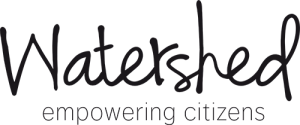Simavi’s Senior WASH programme officer, Tim Sutton, will be attending the World Water Week in Stockholm. The annual event is hosted by the Stockholm International Water Institute (SIWI), and the theme this year is “Water and Waste – Reduce and Reuse”. In a series of two blogs we will capture his expectations, views and reflections before and after the event.
Having only recently joined Simavi in July this year, I feel rather privileged to represent the Watershed programme on behalf of Simavi at the World Water Week in Stockholm. It will be an opportunity to mingle with like-minded people, gain an insight into the global water challenges and seek possible sustainable solutions.
Prior to joining Simavi, I spent the last 20 years in the field delivering WASH services to poor, remote communities around the globe, and have experienced first-hand the challenges and issues around the use and protection of water resources. I’ve learned that one of the key elements to achieving WASH sustainability is ensuring good governance by empowering communities and disadvantaged people.
Watershed and the Sustainability Challenge
What I find interesting in this year’s theme, “Water and Waste – Reduce and Reuse” is how the Watershed programme is at the core of the WASH sustainability challenge, and recognises three indisputable facts, namely that: 1) sustainable WASH services cannot be achieved without sustainable water resources, and vice versa; 2) achieving universal access to sustainable WASH services is a governance challenge; and 3) a strong civil society is essential to improving governance.
The Watershed programme recognises that WASH services fail people in access, in quality, and in affordability. However, by enabling the disadvantaged to monitor and hold service providers accountable, and giving them evidence and a voice to leverage policymaking, they can more effectively demand their human right to water and sanitation through an equitable and sustainable allocation of water resources.
Integrated approaches towards SDG6
One of Simavi’s pillars in its theory of change is to create community-based organisations (CBOs) that are confident and skilled to hold governments to account, and able to engage and influence decision-makers in the design and implementation of sustainable equitable WASH policies that result in a healthy life for all.
Under the Watershed programme, we are exploring these linkages in order to move the SDG6-based need for integrated approaches forward. In particular, the programme focuses on how a strong civil society can help to build the collaboration and connections required for such integration. The Watershed programme is a strategic partnership between the Dutch Ministry of Foreign Affairs and IRC, Simavi, Wetlands International and Akvo. For more information, visit the Watershed website.
At the World Water Week event, the Watershed programme will organise a breakfast meeting on the 30th August at 8.00am to explore how to better integrate water resources management and water security into water, sanitation and hygiene (WASH) service delivery. Please join me there! You can find more information about Simavi’s activities at Stockholm here.
As I travel to Stockholm, I’m ready with my contact cards and the Simavi theory of change handouts. I really looking forward to an insightful week ahead!
Original post at https://simavi.org/long-read/blog-series-watershed-sustainability-challenge/
